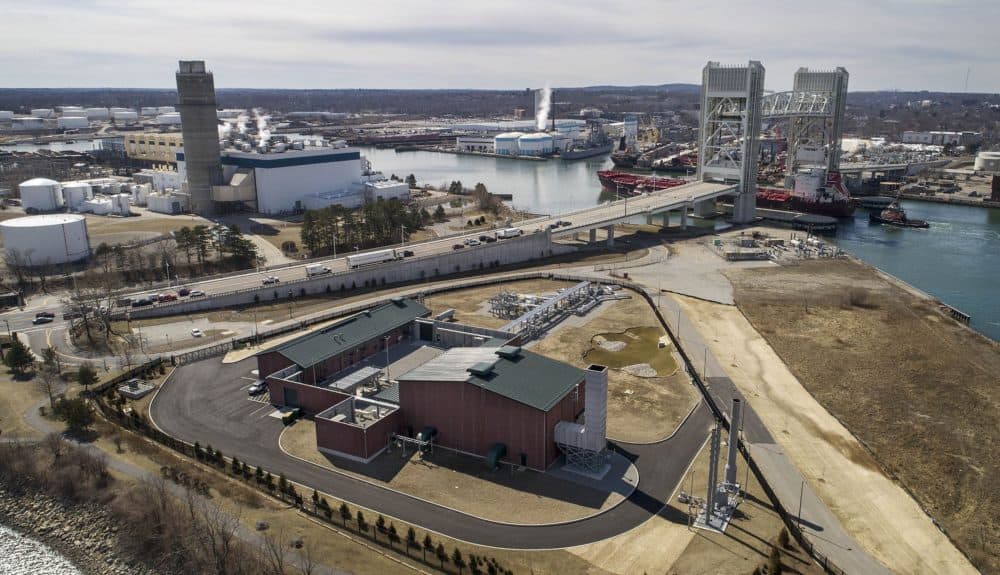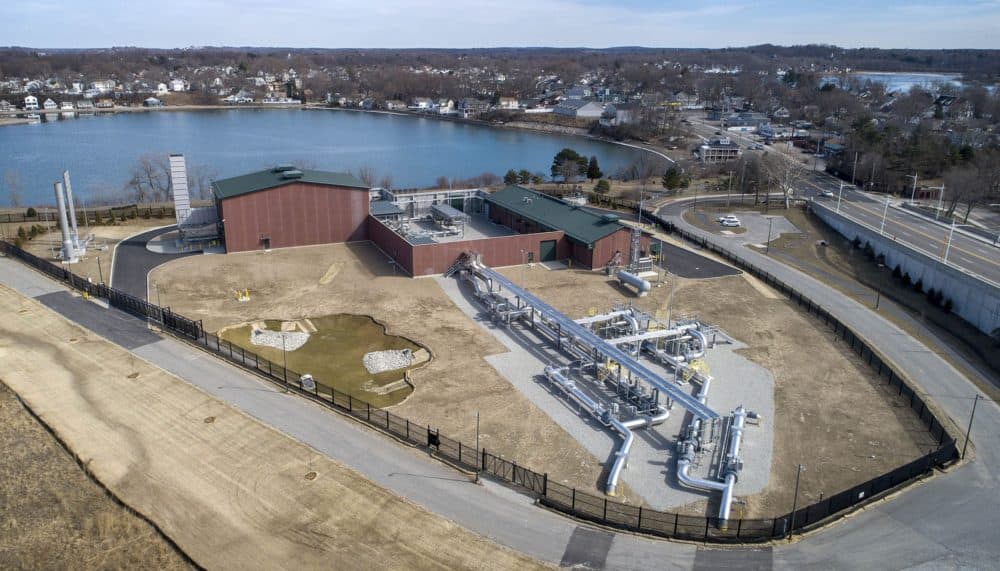Advertisement
It's back to the drawing board for Weymouth Compressor's waterways permit

A new chapter has opened in the ongoing saga of the Weymouth Natural Gas Compressor Station. Late Friday afternoon, an adjudicator with the Massachusetts Department of Environmental Protection's appeals division recommended that the department re-evaluate a critical environmental permit that the compressor needs in order to operate.
Though the compressor station is still allowed to operate at this time, the decision represents “a major victory” for those who have been fighting the facility for over seven years, said Alice Arena, president of the group Fore River Residents Against the Compressor.
“It's probably the first time that I feel as though there was some genuine, really genuine hope that they may have to close this facility,” she said. “In all of the years that we've been doing this, we have been through appeal and appeal and remand and appeal again, and every time it's all for [the facility's owner] Enbridge.”
A spokesperson for Enbridge said in a statement that the company is “reviewing the Presiding Officer’s recommended decision regarding the Weymouth Compressor Station’s Waterways License and will evaluate our next steps.”
Like all energy projects, the Weymouth Compressor needed several environmental permits and licenses in order for Enbridge to start construction. One of those permits was a “Chapter 91 Waterways License.”
Chapter 91 of the Massachusetts General Laws is all about protecting the public's interest in waterways, and ensuring only things that are “water dependent” get built in tidelands or under bodies of water.
Enbridge never claimed the facility, which compresses gas to give it a boost and help it move through a pipeline into Canada, meets that definition. Instead, the company declared that the compressor was “ancillary” to an existing pipeline that runs underwater from Weymouth to Salem. That pipeline, known as the I-10 or HubLine, has a valid waterways license, and so, by declaring the then-proposed compressor was “ancillary” to it, the latter would not require its own review and license.
To be considered ancillary in this context, a project needs to meet two criteria: It must be operationally related to the original project. And second, it must require an adjacent location.
Enbridge argued that its project met both of these criteria, and after some legal back-and-forth with project opponents, the state ultimately agreed. Enbridge received its waterways license for the compressor in May 2019.
Opponents once again challenged the permit shortly thereafter, arguing that the compressor did not actually require a location next to the HubLine. As evidence, they noted that Enbridge named seven possible locations when it first proposed the compressor station, some of which were several miles away from the spot it ultimately chose.
The challenge has been making its way though the legal system, and in March, a Norfolk Superior Court judge ruled that the state Department of Environmental Protection used the wrong definition of the word “requires” when it determined that the compressor required a location next to the HubLine.
The judge vacated the waterways permit and remanded the issue back to the state for a hearing, which took place last month in front of Adjudicator Jane Rothchild.

On Friday, Rothchild sided with the opponents, writing, “the compressor station does not require a location adjacent to the HubLine because it can reasonably and feasibly be located in one of several alternative locations.” She also noted that the compressor “is not integral to the operation of the [HubLine]” — a point the lawyer for the opponents argued was central to the proceeding.
Rothchild recommended that the department reassess whether the compressor is eligible for a waterways permit as a standalone project. If it ultimately declines to issue the permit, the ability of the compressor to continue operating could be called into question.
“It is a big deal,” Arena says. “I am ecstatic.”
